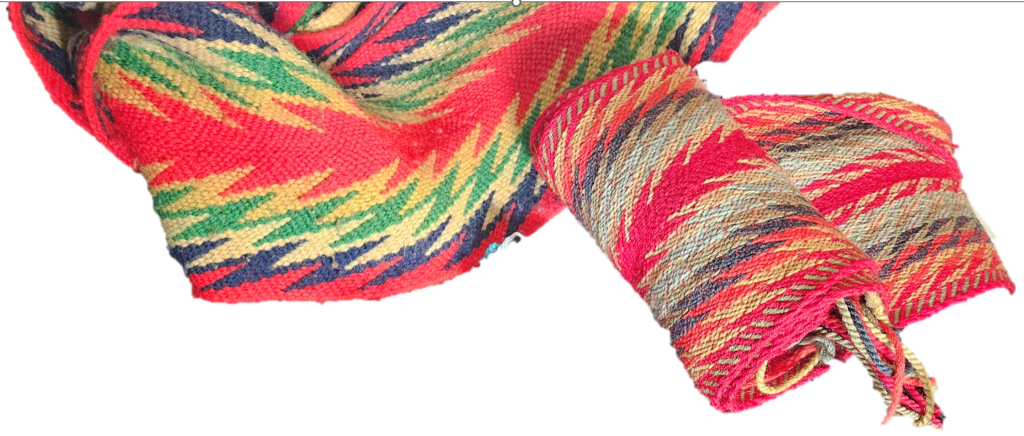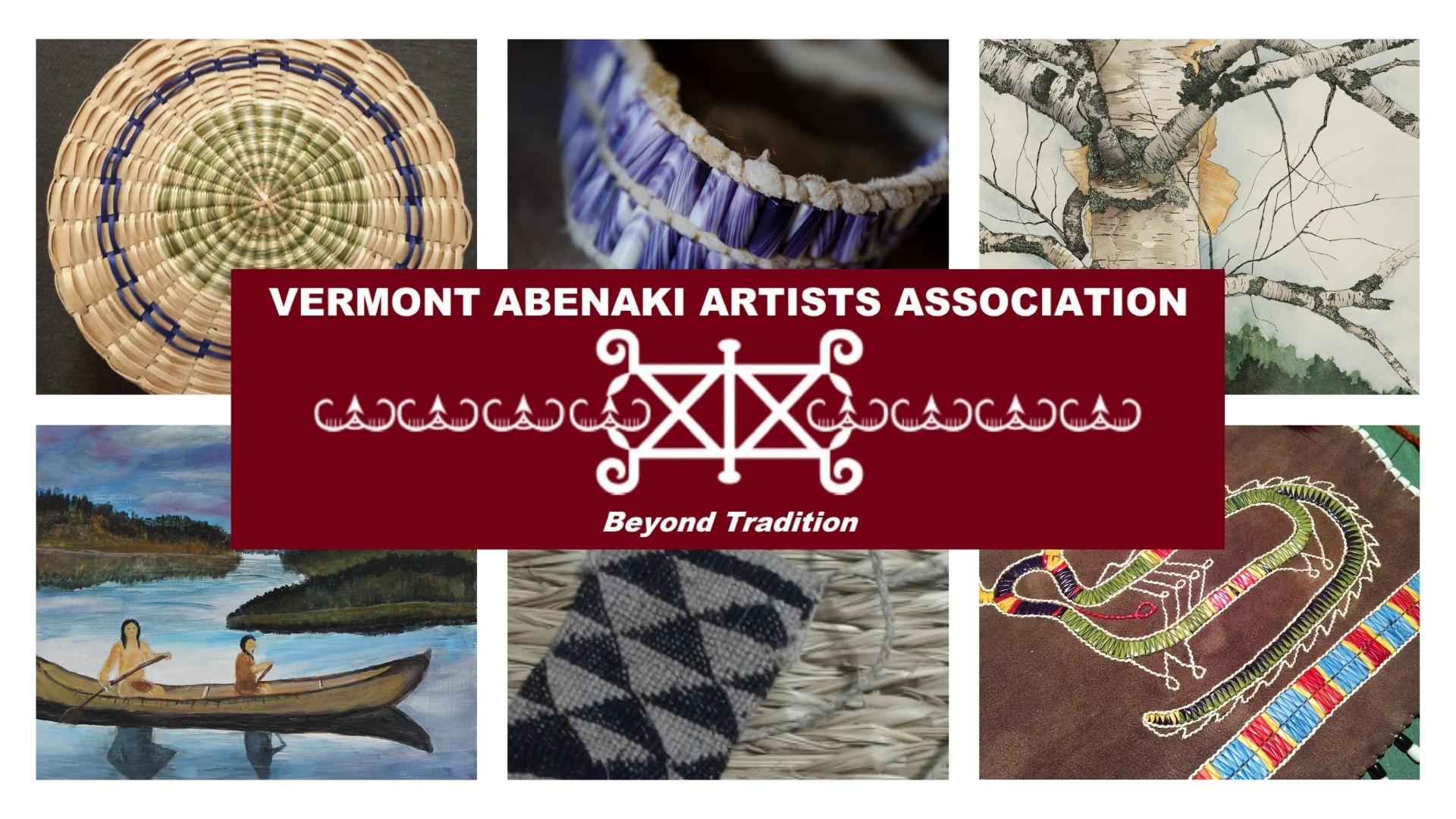
Friday, January 26, 2024 from 9:45am to 4:30pm at Axinn

Vermont Abenaki Artists Association presents a day of artmaking, cultural exchange, and discussions with Paul-René Tamburro, Ph.D. (Abenaki), and Andrea Tamburro, EdD, MSW (Shawnee). Artmaking activities will include fingerweaving and porcupine quillwork on birch bark.
Space is limited; registration is highly recommended for arts workshops. This form does not guarantee a space, you will be notified either way.
Schedule
Daylong Exhibit of Abenaki Art (see description below)
- 9:45 – Coffee and light refreshments
- 10:00 – Welcome and Orientation
- 10:15 – Two Art Workshops ~ Porcupine Quillwork & Fingerweaving
- 1:00 – Discussion: “Examining Indian Identity Political, Biological, and Cultural”
- 2:30 – Art Workshops (repeated)
- 4:30 – Closing
Workshop Leaders and Presenter Bios
Paul-René Tamburro, Ph.D., MSW, MA (enrolled citizen of the Nulhegan Abenaki Tribe)
Paul-René is a member of the Vermont Abenaki Artist Association and the Nulhegan Abenaki tribe in Vermont. He was given the name “Began with a Drum” as a young man while participating in the East Coast powwow circuit. It reflects the large amount of time spent sitting at the drum learning Northern, Southern and Eastern song traditions.
The name “Sunrise Drum” combines the Wôbenaki (‘People of the ‘Dawn’ or ‘Sunrise’) with Paul-René’s last name (Tamburro) meaning “drum.” His Abenaki name translated also contains the word ‘drum’ – Môjassadop Spiwi Pakholigan: “Began with a Drum.”
Paul-René has combined studies in the hopes of finding ways to sustain and support First Nations / Indigenous languages and cultures. There are many people with Indigenous North American “blood”, tribal/ band enrollments, or DNA – but the languages and cultures are quickly disappearing. For this reason, he earned graduate degrees in anthropology, linguistics, and social work. Paul-René has taught courses at numerous universities and colleges including Indiana University, Indiana State University and Purdue University in Indiana, The Evergreen State College (TESC) and Heritage University in Washington State, University College of the Cariboo and Thomson Rivers University (TRU) in Kamloops BC, Canada and others. At TRU, Paul-René added Indigenous content into their social work program. Prior to this, Paul-René was Director of the Reservation Based/Community Determined Program at TESC. For more information please visit Paul-René’s website.
Andrea Tamburro, EdD, MSW (enrolled citizen of the Piqua Shanee)
Andrea is Shawnee and has extensive leadership experience in both the Indigenous and non-Native settings. Andrea worked as education director with a federally recognized tribe, taught and done research in Indigenous focused institutions (Nicola Valley Technical Institute and Thompson Rivers University). She served as coordinator of multicultural programs in a mental health center and in family services, and mental health specialist in early childhood education programs (including migrant and school year programs). Andrea has a Master of Social Work degree (MSW) from the University of Iowa and a doctorate in Educational Leadership (EdD) from Simon Fraser University, British Columbia, Canada.
She was the Bachelor of Social Work program director at Indiana University on both the South Bend and Northwest campuses. She developed a tool that Canadian schools of social work could use to analyze their Indigenous content for strengths and gaps. She has also developed Indigenous content in educational curriculum, providing leadership for an Indigenous land acknowledgment at Indiana University. She continues to teach about Indian Child Welfare and Multi-generational Trauma. For more information please visit Andrea’s website.
Exhibition Description

Askwa n’daoldibna iodali: We Are Still Here
Abenakis have lived in N’Dakinna (our homeland) since Gluskape fired his arrow into the ash tree and Alnobak (human beings) sprung from the ash tree. Over millennia, we developed scientific and technological innovations, art, and spiritual systems that helped us survive and thrive from the ice age to the present day.
Despite our complex history of colonization, and significant loss of cultural knowledge keepers due to colonial wars, disease, stolen lands, and forced sterilization, we are strong and resilient people.
We retain our cultural traditions, and our artists continue to make art inspired by our history and traditions. We are your friends, neighbors, colleagues, and classmates.
We have been in this region for more than 12,000 years. We are still here.
Register Now
Co-Sponsored by:
- Vermont Abenaki Artists Association
- Middlebury Theatre Department
- Department of History of Art and Architecture
- Committee on the Arts (CotA)
